Rural communities have historically faced challenges in accessing reliable infrastructure, including adequate street lighting. The absence of street lighting in rural areas also meant that nighttime activities were limited, creating a barrier to social interactions, local businesses, and community events while compromising safety. A proper illumination enables economic, social and leisure activities to continue into the night with enhanced security. Recognizing these challenges, Tenaga Nasional Berhad (TNB), in collaboration with Ministry of Rural and Regional Development (KKDW), launched the Village Street Lighting Programme to transform rural landscapes and improve the daily lives of thousands of Malaysians.
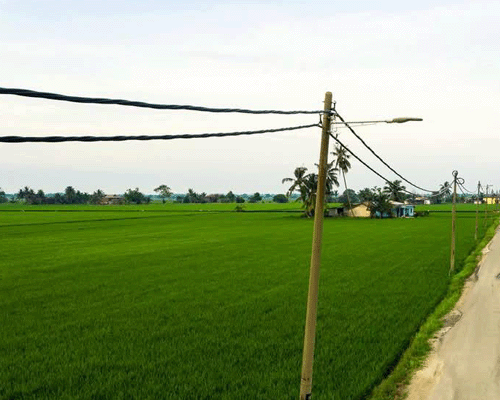
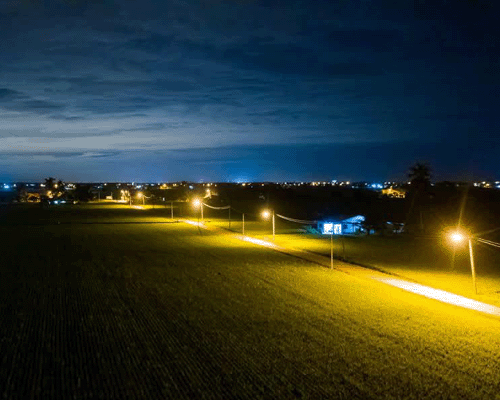
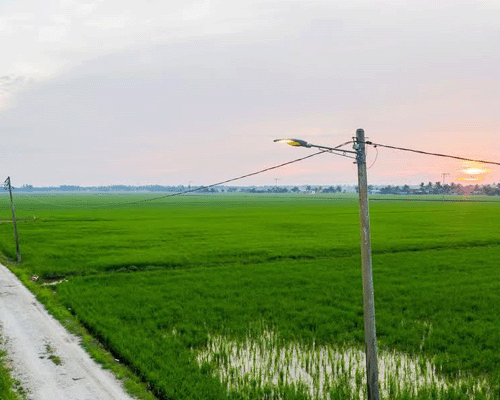
Lighting the Way
The Village Street Lighting Programme was approved for implementation by the Cabinet Meeting in August 2000. Since its inception, a total of 525,081 Village Street Lights (Lampu Jalan Kampung - LJK) units have been installed in rural areas nationwide. In 2024, under Phase 11 of the 2022 Village Street Lighting Programme, KKDW handed over 14,210 units of LJK to TNB and Sabah Electricity. This phase, funded with a RM39.9 million allocation under the Twelfth Malaysia Plan (RMK 12), in which, 12,300 units were installed in Peninsular Malaysia, while 1,910 units were installed in Sabah. All LJK use 75-watt light-emitting diode (LED) lamps installed on existing electrical poles.
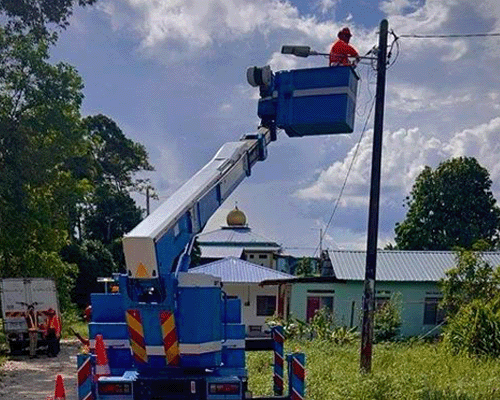
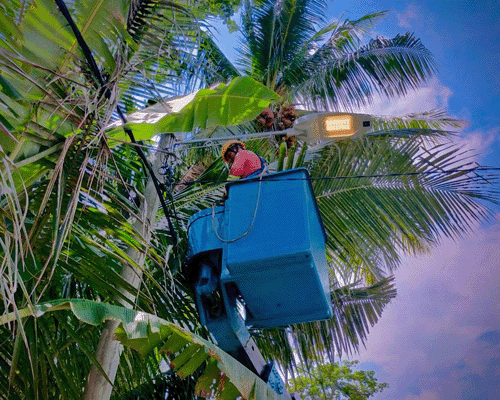
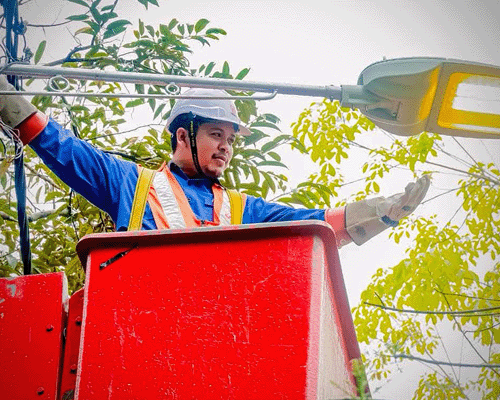
Key Features of the Programme
-
Affordable and Accessible
- The initiative was designed to ensure financial feasibility for rural communities. By collaborating with local authorities, the programme prioritizes equitable access to modern infrastructure without imposing a financial burden on residents, offering rural areas a level of modernity comparable to urban counterparts.
-
Extensive Coverage
- The programme covers a wide range of areas, from small villages to remote regions. TNB is working hand-in-hand with local authorities to identify areas that most needed street lighting and prioritized these locations for installation.
-
Improved Public Safety
- One of the most immediate impacts of the street lighting was the improvement in public safety. Better-lit streets have contributed to the improvements in public safety. Reduced crime rates and fewer road accidents, especially among motorcyclists and pedestrians, are among the immediate benefits of the programme. For children in rural areas who walk long distances to school, enhanced lighting ensures safer travel, especially during early mornings, late afternoons, and rainy seasons when daylight can be limited.
-
Economic and Social Benefits
- Street lighting has revitalized local economies by enabling street markets, small businesses, and community events to extend into the evening. This has led to increased economic activity, stronger social ties, and an enhanced sense of security among residents.
-
Solar Street Lights
- In keeping with Malaysia’s commitment to sustainability, the Ministry of Rural Development (KKDW) has agreed to implement the installation of solar LED lights under the project starting 2024. These environmentally friendly solutions minimize reliance on fossil fuels and reduce electricity consumption, making them ideal for rural areas with limited electricity infrastructure.
-
Sustainable Development
- The use of LED and solar-powered lighting system underscores TNB’s commitment to sustainable energy practices. These streetlights reduce greenhouse gas emissions, lower energy consumption, and offer a cleaner, greener alternative to conventional streetlights.
Challenges and Looking Ahead
Despite its successes, the programme faces challenges, including logistical difficulties in remote and hard-to-access areas and the maintenance of lighting systems, especially in regions prone to severe weather conditions.
TNB remains dedicated to overcoming these obstacles through innovation and collaboration with local authorities and community leaders. Plans are underway to expand the programme to additional villages, focusing on improving infrastructure and ensuring reliable and sustainable operations.
By illuminating rural streets, TNB would like to make a significant contribution to the safety, economic growth, and well-being of communities across Malaysia.
*If you're interested in knowing more about the programme, you may consider reaching out to the local authority at your residence for further details.